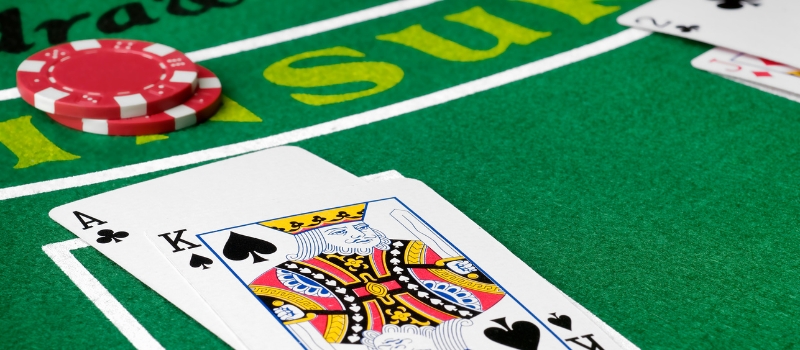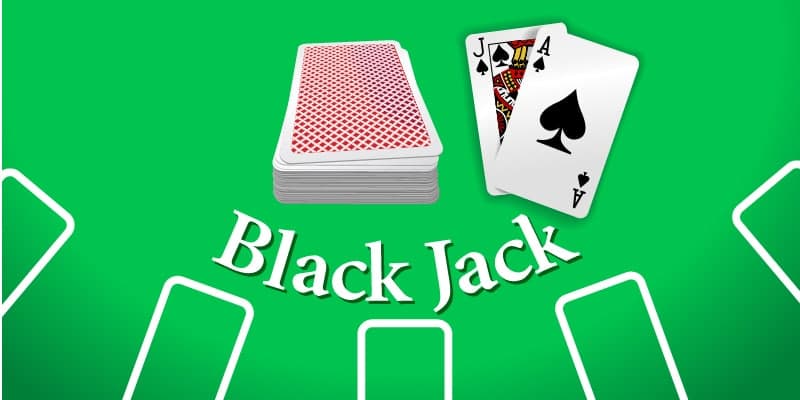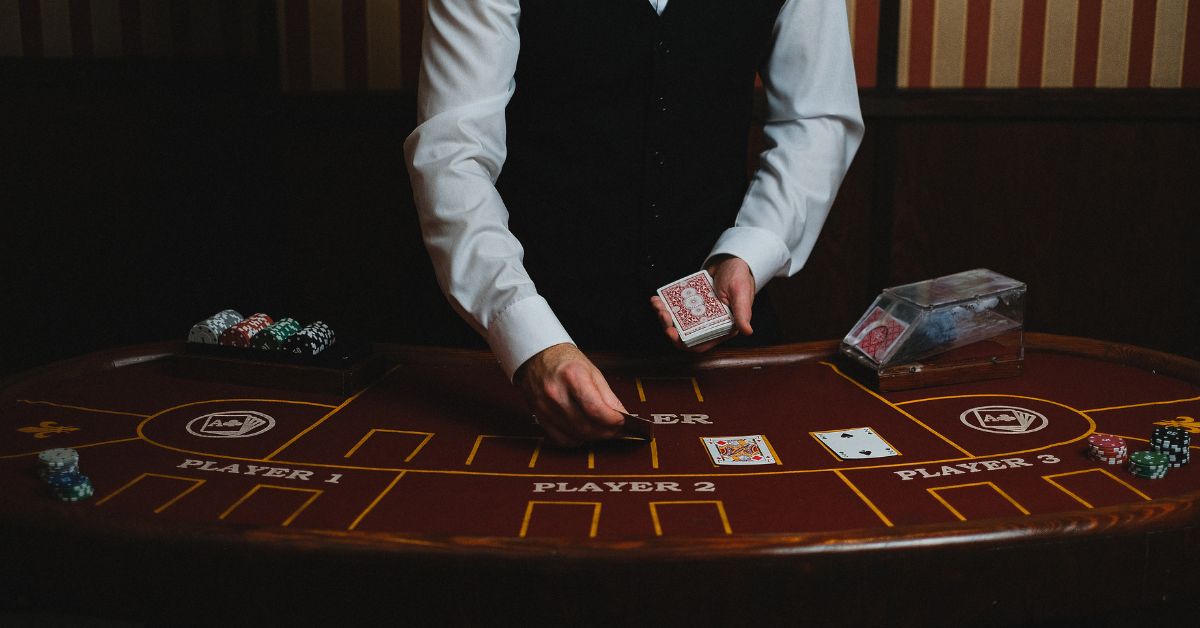Atlantic City Blackjack Guide: Rules, Strategies, and Tips to Maximize Your Wins
Atlantic City Blackjack is a fun version of blackjack using up to 8 decks. One of its key features is “surrender”, which lets players give up their hand and accept to lose a 1/2 bet. This game also offers high payouts and flexible rules that make it easier for players to enjoy the game. Because of these features, more and more people like to play Atlantic City Blackjack.
If you want to win more often, you should read this guide below to enhance your effective strategies and receive some tips that can help boost your gameplay.
Atlantic City Blackjack Explained
Atlantic City Blackjack originated on the East Coast of the United States, specifically in Atlantic City. It quickly became a popular kind of game in many casinos in that area.
The basic rule of Atlantic City Blackjack is similar to a regular round of blackjack. In this match, you will compete against a dealer and your main goal is to have a total hand value close to 21 without going over. If yours exceeds 21, you will go bust and lose the game. Thus, it's very important to know the gameplay and the rules to increase your winning chances.

Below is a specific table for you to have an overview of AC Blackjack:
Action | Winnings |
Decks | 4 - 8 |
Player wins | 1/1 |
Player Blackjack | 3/2 |
Push | Yes |
Tied Blackjack | Dealer |
Dealer Stands on ALL 17 | Yes |
Dealer Stands on soft 17 | Yes |
Insurance bet pays | 2/1 |
Surrender bet | Yes |
Split | Yes |
Re-split | Yes |
Expert Mode | n/a |
Double Down | 9, 10, 11 |
Multi-Hands | 1-5 |
SIDE BET: A-J spades, A-J any suit, Two suited cards, Any Pair, 3-of-a-kind, Red/Black Pair, Colored Pair, Perfect Pair | n/a |
House Edge | 0.36% |
In addition to the gameplay being a lot like the classic one, Atlantic City blackjack differs mainly in the number of decks used and the re-dealing rules.
While traditional blackjack typically uses only 1 - 2 decks, Atlantic City can play with up to 8 decks. Moreover, it allows you more re-dealing options, which means you have more choices to improve your hand if you don’t like the given cards. With these differences make Atlantic City blackjacks a unique and exciting version of the game.
Atlantic City Blackjack Rules and Betting Options
In general, Objective and Card Values follow the traditional blackjack rules, but there are some specific differences in other Atlantic City Blackjack rules as outlined below:
Deck: Uses up to 8 decks, excluding jokers, and can be reshuffled after each round.
Number of Players: A maximum of 7 players can join the game.
Betting Options: Atlantic City Blackjack offers different betting levels (such as $5 - $10, and more), which make it suitable for a wide range of players. Also, some casinos provide side bets to give players more chances to win.
Special Features:
- Split up to three times: If you are dealt 2 cards with the same value, you can split your hand as many as 3 times.
- A late surrender: This is allowed after the dealer checks for blackjack when showing an Ace or a card worth 10 points.
- The most valued card: The Ace remains the highest-valued card in the game.
- Double Down on two cards: You have the option to double down on any hand. Also, this action is allowed even after splitting cards.
- Aces can be split: You’re permitted to split an Ace, but only once. After splitting, you will receive only one more card for each Ace.
- Insurance is available: Insurance is offered in this game, but it is often considered an unwise choice.
- The dealer stands on hands 17: The dealer will not take any more cards if they have a hand totaling 17, even if it’s a Soft 17 (a hand with an Ace counted as 11).
- The dealer can check for blackjack: They are allowed to check their cards for blackjack if they have an Ace or a 10-value card showing.
House Edge and RTP: The House Edge in Atlantic City Blackjack is 0.36%, which makes the Return to Player (RTP) 99.64%. This means, on average, you can expect to win back 99.64% of your bets over time.
Payouts:
The table below shows the payout structure for Atlantic City Blackjack:
Hand/Bet Type | Payout |
Blackjack (Natural) | 3:2 |
Winning Hand | 1:1 |
Insurance | 2:1 |
Push (Tie) | Bet Returned |
Atlantic City Blackjack Strategy Chart
The following strategy of the Atlantic City Blackjack chart is based on the most effective moves for each hand and considers the dealer's upcard. These moves include options like hitting, standing, splitting, doubling down, or surrendering. And the right choice depends on the specific situation you face at the table. Particularly:
Hard Hands (No Ace)
Your Hand | Dealer’s Upcard | Action |
8 or less | Any | Hit |
9 | 3 - 6 | Double Down |
10 | 2 - 9 | Double Down |
11 | 2 - 10 | Double Down |
12 | 4 - 6 | Stand |
12 | Any Other | Hit |
13 - 16 | 2 - 6 | Stand |
13 - 16 | 7 - Ace | Hit |
17 or higher | Any | Stand |
When to Hit:
- Always hit if you have 8 or less, no matter the dealer's card.
- Hit if you have 12 and the dealer’s card is 2, 3, or 7 - Ace.
- Hit if you have 13 - 16 and the dealer’s card is 7 - Ace.
When to Stand:
- Stand if you have 12 and the dealer’s card is 4 - 6.
- Stand if you have 13 - 16 and the dealer’s card is 2 - 6.
- Stand if you have 17 or higher, regardless of the dealer’s card.
When to Double Down (if allowed)
- Double down if you have 9 and the dealer’s card is 3 - 6.
- Double down if you have 10 and the dealer’s card is 2 - 9.
- Double down if you have 11 and the dealer’s card is 2 - 10.
Soft Hands (With Ace)
Your Hand | Dealer’s Upcard | Action |
Soft 13-15 | Any | Hit |
Soft 16-18 | 4-6 | Double Down |
Soft 16-18 | 7-8 | Hit |
Soft 16-18 | 9-Ace | Hit |
Soft 19 | 6 | Double Down |
Soft 19 | Any Other | Stand |
Soft 20 or higher | Any | Stand |
When to Hit:
- Hit if you have 13 - 15, no matter the dealer’s card.
- Hit if you have 16 - 18 and the dealer’s card is 7, 8, or 9 - Ace.
When to Stand:
- Stand if you have 19, 20, or higher, regardless of the dealer’s card.
When to Double Down (if allowed)
- Double down if you have 16 - 18 and the dealer’s card is 4 - 6.
- Double down if you have 19 and the dealer’s card is 6.
Pair Splitting
Your Hand | Dealer’s Upcard | Action |
Aces | Any | Split |
8s | Any | Split |
2s, 3s | 2 - 7 | Split |
4s | 5 - 6 | Split |
6s | 2 - 6 | Split |
7s | 2 - 7 | Split |
9s | 2 - 6, 8 - 9 | Split |
10s | Any | Stand |
5s | Any | Double Down |
When to Split:
- Split if you have 8s or Aces, regardless of the dealer’s card.
- Split if you have 2s, 3s, and the dealer’s card is 2 - 7.
- Split if you have 4s and the dealer’s card is 5, 6.
- Split if you have 6s and the dealer’s card is 2 - 6.
- Split if you have 7s and the dealer’s card is 2 - 7.
- Split if you have 9s and the dealer’s card is 2 - 7 or 8, 9.
When to Stand:
- Stand if you have 10s, regardless of the dealer’s card.
When to Double Down (if allowed):
- Double down if you have 5s, regardless of the dealer’s card.
Late Surrender
Your Hand | Dealer’s Upcard | Action |
Hard 15 | 10 | Surrender |
Hard 16 | 9, 10, Ace | Surrender |
When to Surrender (if allowed):
- Surrender if you have 15 and the dealer’s card is 10.
- Surrender if you have 16 and the dealer’s card is 9, 10, Ace.
In general, your Atlantic City Blackjack strategy relies on the soft or hard hand and the dealer’s upcard. For soft hands, you often hit or double down based on the dealer's card. While for hard hands, you commonly hit on low values and stand on higher ones.
Note: If you're interested in why there are different strategies for each type of hand, be sure to read the full detailed for a deeper explanation of Hard and Soft hands in blackjack!

Should you play Atlantic City Blackjack?
Atlantic City Blackjack offers a high win rate thanks to the late surrender option. Yet, it's important to pay attention to the possibilities and limits to avoid losing your advantage.
Below are specific insights into the pros and cons of Atlantic City Blackjack, highlighting how each factor impacts both players and the house:
Pros | Cons |
Low house edge increases player odds. Late surrender reduces potential losses. Dealer stands on soft 17, favoring players. Allows multiple splits for flexible play. Double down on any two cards, even after splits. | Limited availability in some casinos. Uses 8 decks, making card counting harder. Dealer peeks for blackjack, limiting player options. Insurance bet is generally unfavorable for players. |
Atlantic City Blackjack Tips
The basic strategy for this game is almost the same as regular blackjack. But, there are a few small differences that you should know. Here are some tips that can help when you play Atlantic City blackjack online:
- The dealer stops when they reach 17: It’s important to know this because it can change how you play. If you have 17 or 18, you might think carefully about your next move when knowing the dealer will stop at 17.
- Be careful when splitting Aces: After you split Aces, you can only get one more card for each hand. You might get lucky, but it’s very risky if you just receive two small cards.
- Insurance is still not a good choice: No matter which version you join, it's often better to avoid the insurance side bet. Instead, you might choose to use the late surrender option in Atlantic City Blackjack.
- Not to overuse late surrender: Some players rely on this option too often. Remember that you might give up a hand that you could have won if you kept playing.

Atlantic City blackjack is a favorite type of blackjack that many people want to enjoy. It’s quite easy to play if you know a few basic rules, and also gives you one of the best chances to win thanks to its low house edge.
Before you start, it’s a good idea to double-check the rules at each casino, as some may be a little different. Next, it's helpful to find some tips that can make the game even easier to victory. In general, Atlantic City blackjack is actually a fun and exciting version to try if you’re ready to start playing!
















